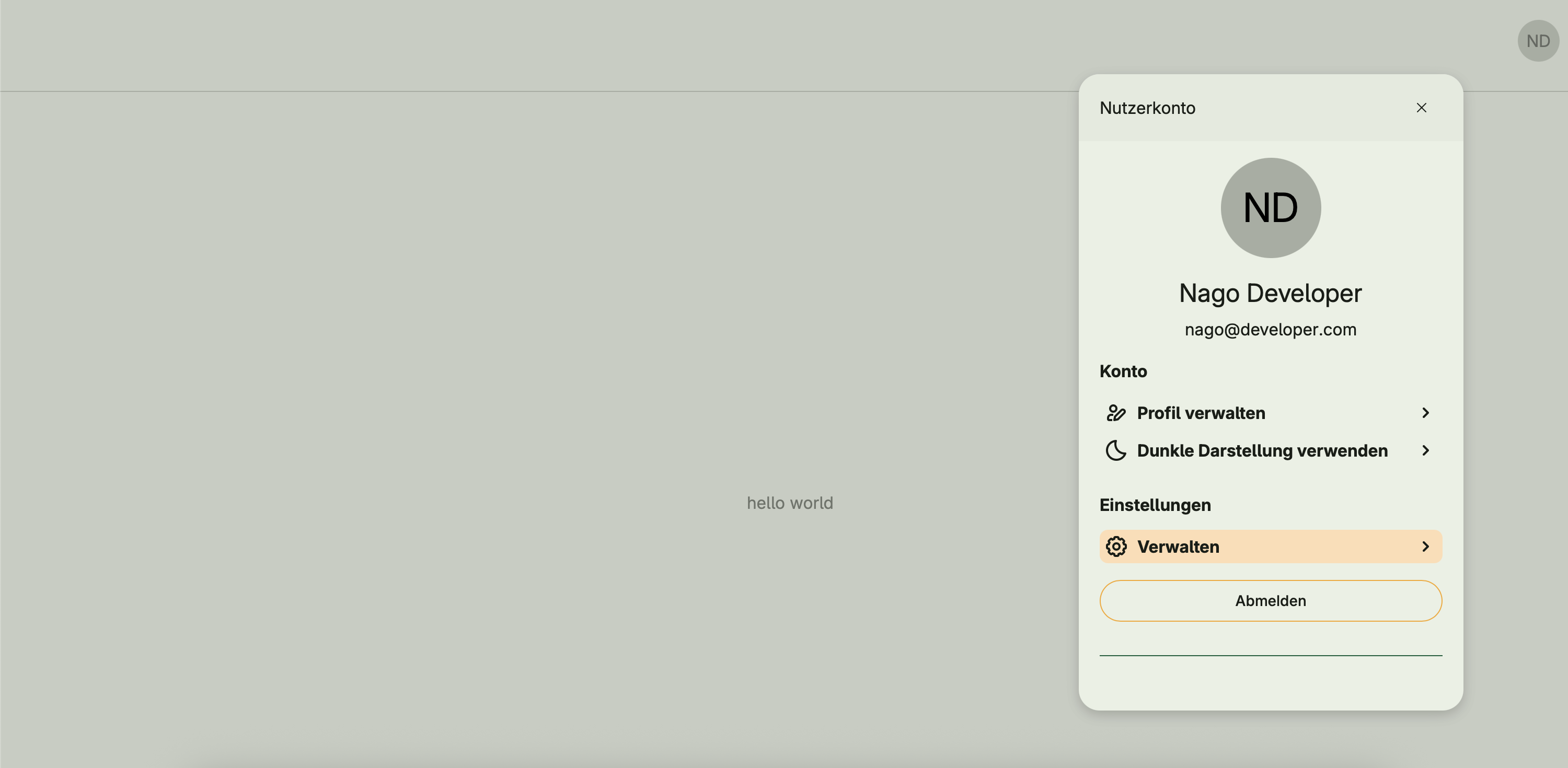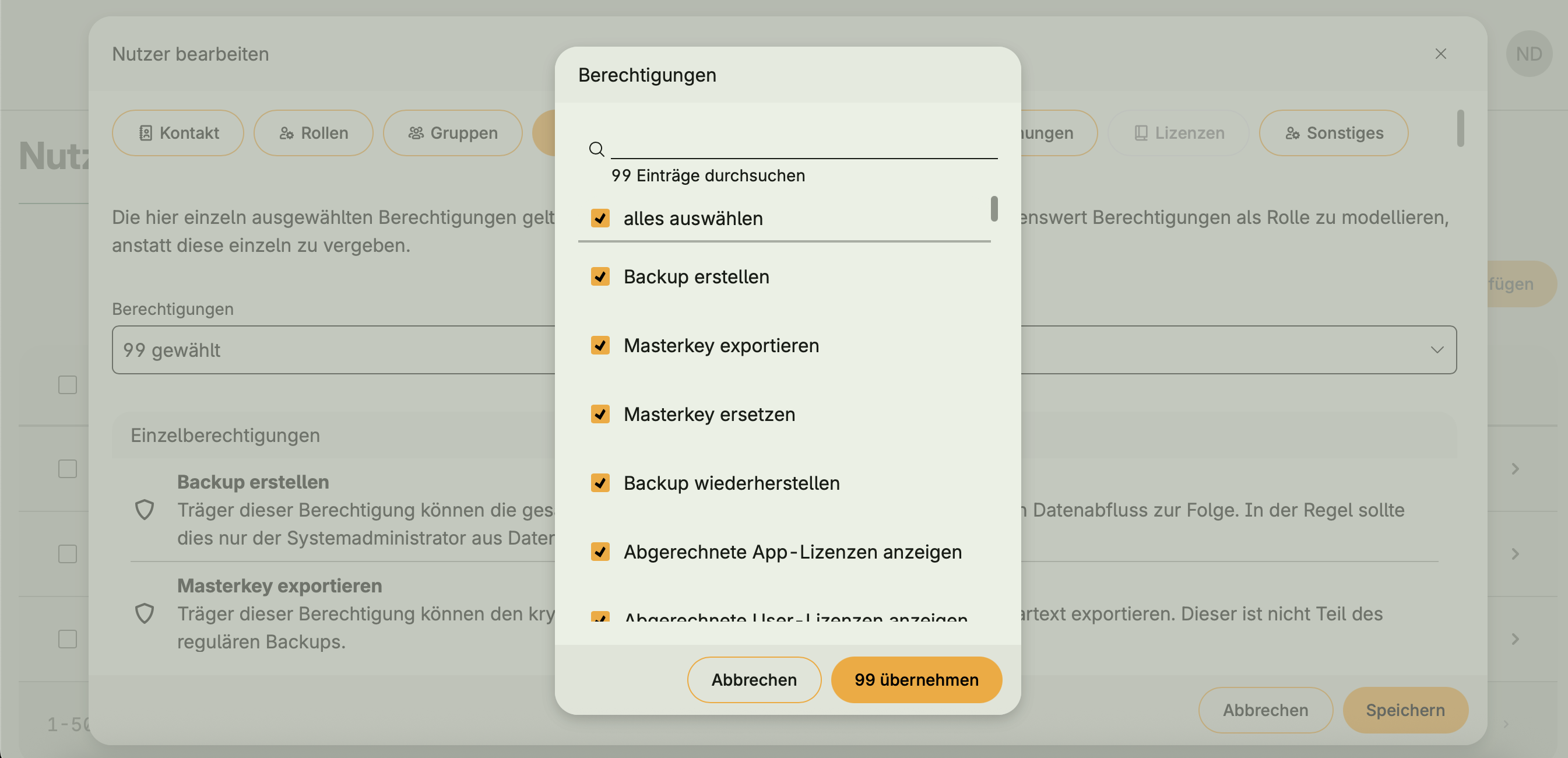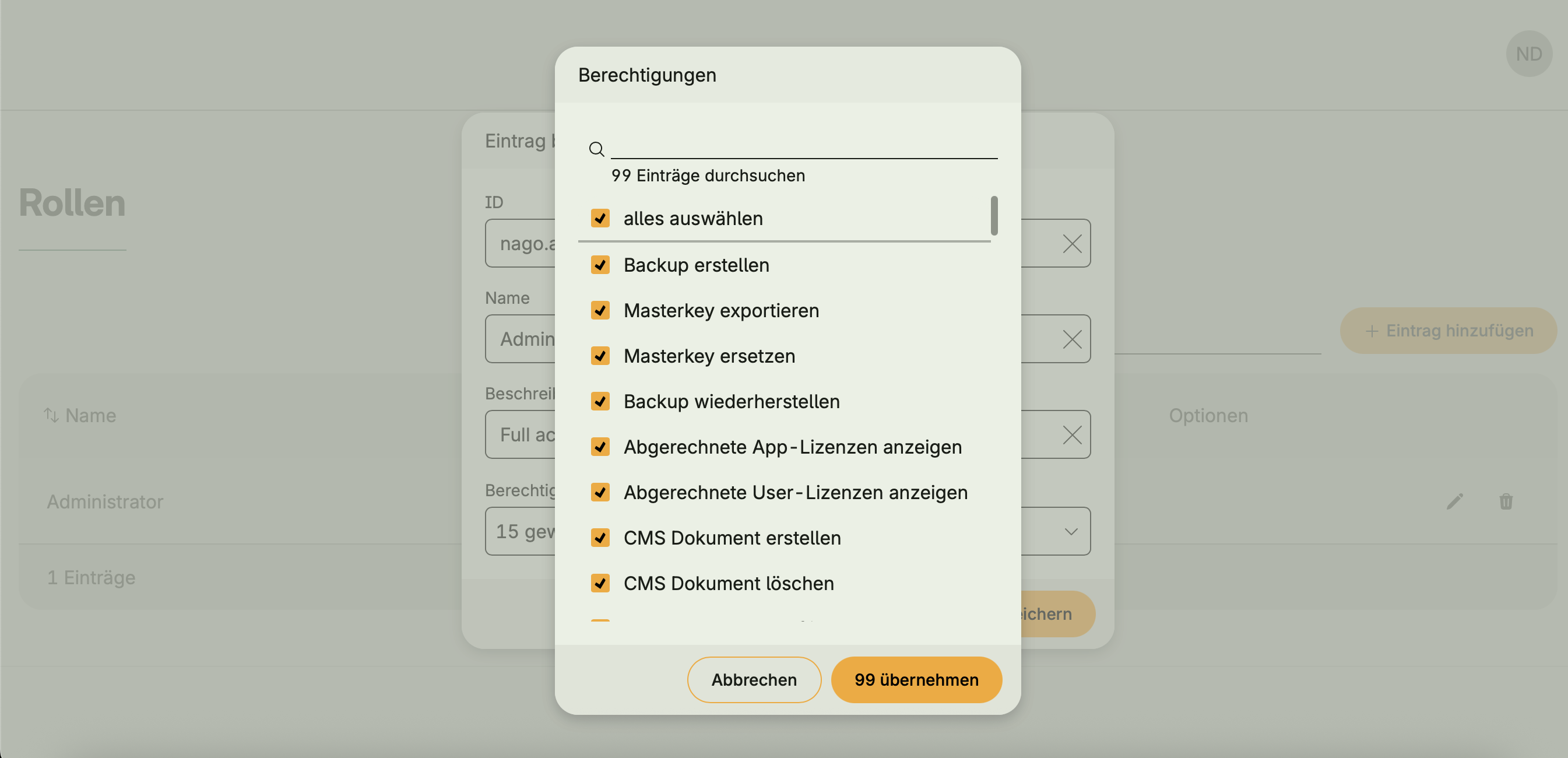Permission Management
The Permission Management system manages all available permissions across the platform.
Permissions are the most fine-grained unit of access control and can be used for specific use cases in the domain.
Each application use case defines its own permissions at development time.
Permissions cannot be created or modified at runtime, but they can be viewed and assigned to users.
Functional areas
Permission Management offers the following key functions:
Permission lifecycle
- Permissions are defined in code at development time
- Default permissions are automatically created when a system is activated
- New permissions can be declared programmatically via the
permission.Declarefunction - Permissions cannot be created or edited in the UI
Permission assignment
- Permissions cannot be assigned directly to groups
- Instead, permissions can be grouped into Roles which then can be assigned to users
- Permissions can also be assigned directly to users via User Management
Default permissions
- Each system provides its own default permissions when activated
- Example (from Mail Management):
var (
PermSendMail = permission.Declare[SendMail]("nago.mail.send", "Send Mail", "Holders of this authorization can send emails.")
PermInitDefaultTemplates = permission.Declare[SendMail]("nago.mail.init_default_templates", "Standard Templates", "Holders of this authorization can activate the standard mail templates.")
)
type SendMail func(subject auth.Subject, mail Mail) (ID, error)Example: Declare and use custom permissions
package main
import (
"go.wdy.de/nago/application"
"go.wdy.de/nago/application/permission"
"go.wdy.de/nago/auth"
"go.wdy.de/nago/pkg/std"
"go.wdy.de/nago/presentation/core"
"go.wdy.de/nago/presentation/ui"
"go.wdy.de/nago/presentation/ui/alert"
"fmt"
"time"
)
var PermGetCurrentTime = permission.Declare[GetCurrentTime]("nago.current.time", "Get current time", "Holders of this permissions can retrieve the current time.")
type GetCurrentTime func(subject auth.Subject) time.Time
func main() {
application.Configure(func(cfg *application.Configurator) {
cfg.SetApplicationID("de.create.permission")
std.Must(cfg.PermissionManagement())
cfg.RootViewWithDecoration("current_time", func(wnd core.Window) core.View {
if err := wnd.Subject().Audit(PermGetCurrentTime); err != nil {
return alert.Banner("Error", "You are not allowed to see the current time")
}
return ui.Text(fmt.Sprintf("%s", time.Now()))
})
}).Run()
}Dependencies
Requires:
- None
Is required by:
Activation
This system is activated via:
std.Must(cfg.PermissionManagement())permissionManagement := std.Must(cfg.PermissionManagement())



